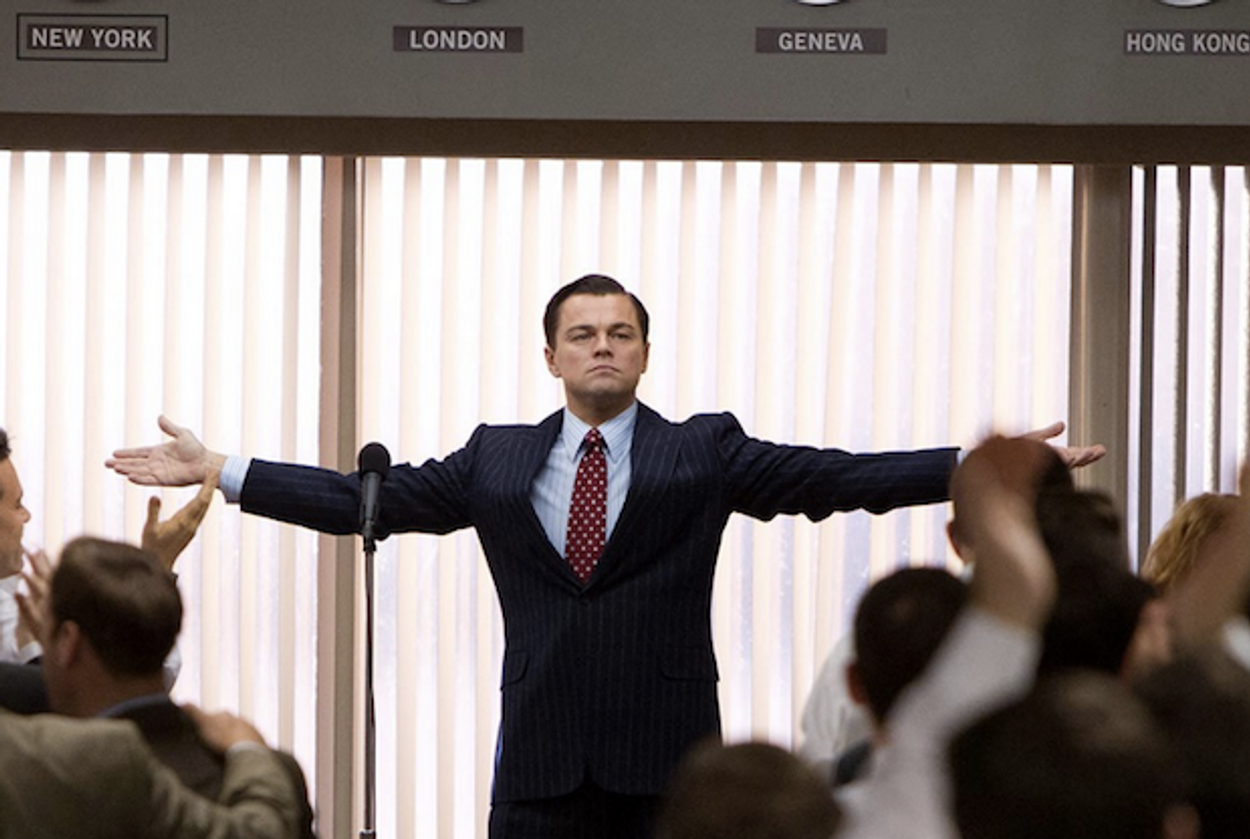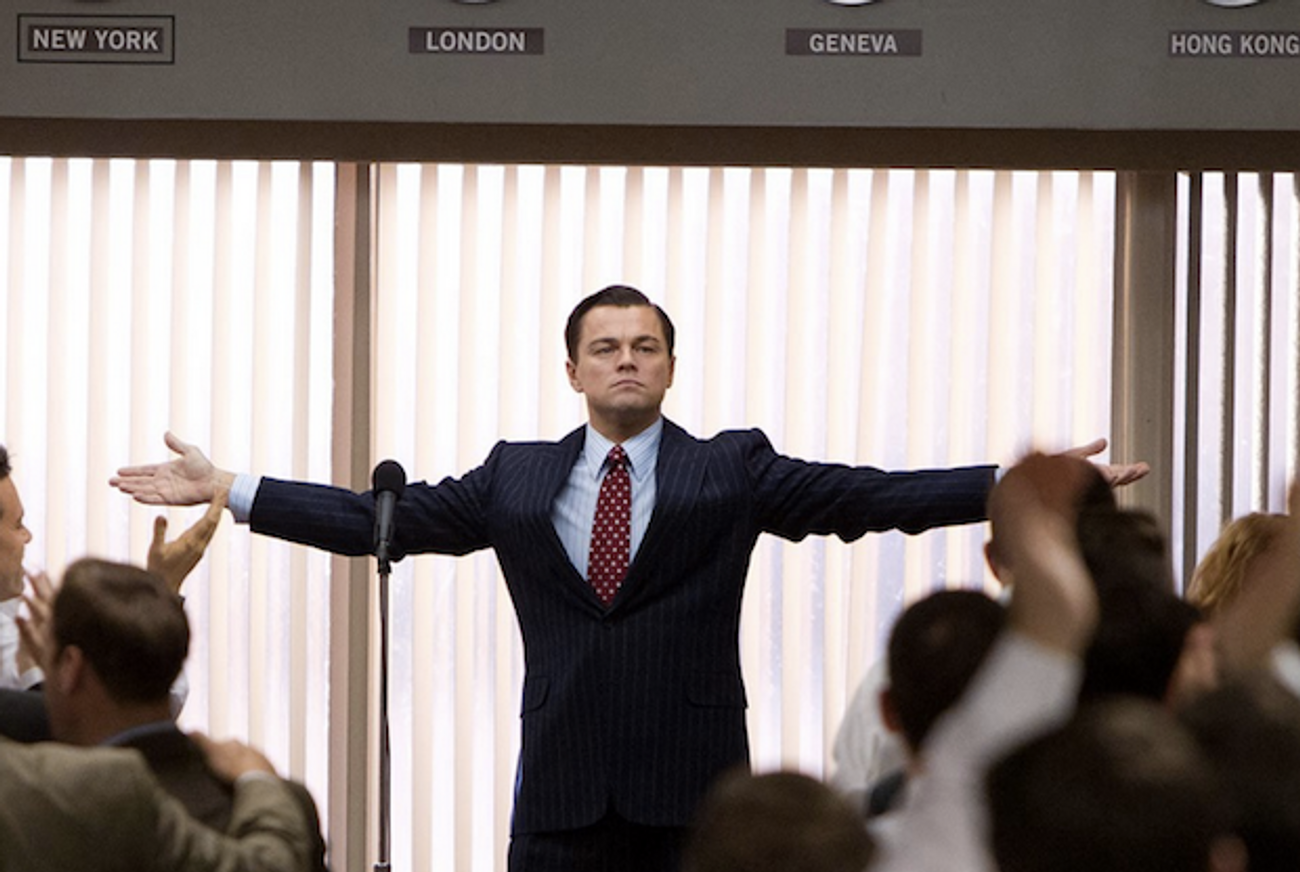‘The Wolf of Wall Street’ Was a Nice Jewish Boy from the Bronx
The Scroll looks at the wild new Martin Scorsese movie




It seems a little too perfect that the most anticipated movie slated for release on Christmas is about a Jewish boy held to deity status. I’m talking about “The Wolf of Wall Street,” a Martin Scorsese marathon of excess, dolor, drugs, and money that stars Leonard DiCaprio. It’s based on the memoirs of Jordan Belfort, at one point, a nice Jewish boy from the Bronx, but later a 1990s Icarus got flew too high and nosedived spectacularly.
At the helm of his firm Stratton Oakmont, Belfort made millions upon millions through financial treachery and ultimately went to jail for securities fraud and money-laundering. He also betrayed all of his friends. Five years after Bernie Madoff and the near-collapse of the U.S. economy, there may be resonance with the devil-may-care destruction wantonly wrought in the movie. As Joe Nocera explains, the impulse for a literal link should be avoided.
But the rise and fall of Stratton Oakmont in the late 1980s and ’90s has nothing to do with the events that brought the financial system to the brink. It’s just that movies don’t do well describing what really happens day to day on Wall Street, not even Oliver Stone’s two tries. It is easier — and in many ways more sensible — to do films like “The Wolf of Wall Street” and “Boiler Room” (the 2000 drama that was also said to be modeled after Stratton Oakmont). It is much easier to convey on screen Mr. Belfort’s greed than Goldman Sachs’s.
Greed may be good, you know, for a story arc, but what fuels ‘Wolf’ is the chaos. $100,000 sports cars smashed. Helicopters wasted. A luxury yacht (originally built for Coco Chanel) sunk off the coast of Sardinia. Orgies coalesce in penthouses, hotels, and on planes. The Hamptons are wasted. Dwarves are rented and thrown. A secretary is paid $10,000 to shave her head for entertainment. (This will spoil nothing for you.) With savage intensity, Belfort snorts, downs, smokes, and defiles everything on the primrose path to mega-wealth. For these reasons, the film will immediately become a classic among the heirs to the Boiler Room generation.
What’s different about ‘Wolf’ though is that instead of it being a movie made top-heavy by a mawkish morality at the end, the screenwriter Terence Winter lines the depravity and the consequences of Belfort’s depravity side-by-side. Life is unraveling and tragedy is unfolding attendantly; it has a dizzying effect because you keep expecting someone reasonable to bring in a pot of coffee.
Leonard DiCaprio as Belfort is mesmerizing and the physical requirements of the role are benumbing. It comes as little surprise that Belfort as a character is not particularly introspective or complex; DiCaprio’s feat is that we’re fixated by him anyway as he chucks hundred dollars bills into the trash and delivers bullpen floor speeches to his minions that would make Churchill blush. (To his credit, Jonah Hill as Donnie Azoff, Belfort’s Sancho Panza, is surprisingly not like the Jonah Hill we know for at least eighty percent of his screentime.) The result is equal parts overdetermined, shocking, and engrossing.
If you like your cornflakes unfrosted, go see Ben Stiller in “The Secret Life of Walter Mitty.” Otherwise, go. And if you’re gunning to have Chinese food beforehand, make sure you have triple helpings. The bacchanal clocks in at exactly 180 minutes.
Adam Chandler was previously a staff writer at Tablet. His work has appeared in the New York Times, the Wall Street Journal, the Atlantic, Slate, Esquire, New York, and elsewhere. He tweets @allmychandler.